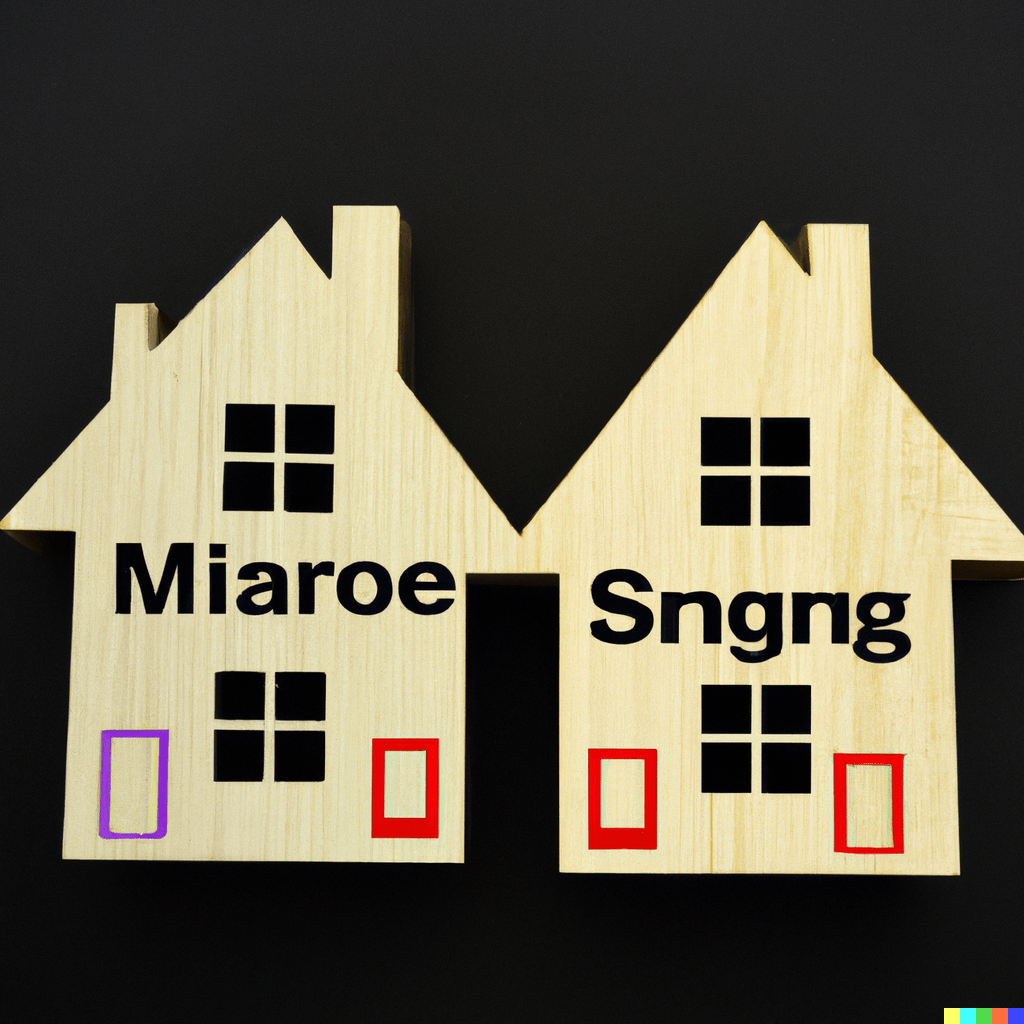Mortgage or shared ownership? Common question.
- By: Sarbaz Hassan
- On:
- 0 Comment

Mortgage or shared ownership? It’s a common question that many people ask themselves when they’re looking to buy their first home. Both options have their pros and cons, and it’s important to weigh them up before making a decision.
What is a Mortgage? A mortgage is a loan that you take out to buy a property. You borrow a sum of money from a lender, such as a bank or building society, and then repay it over a set period, usually between 25-30 years. The amount you can borrow will depend on your income, credit score, and the size of your deposit. You’ll need to make regular payments to your lender, which will include both the amount you’ve borrowed and interest. Once you’ve paid off your mortgage, you’ll own your home outright.
What is Shared Ownership? Shared ownership is a government-backed scheme that aims to help people get onto the property ladder who can’t afford to buy a home outright. With shared ownership, you buy a share of a property (usually between 25-75%) and pay rent on the remaining share to a housing association or developer. You’ll need to take out a mortgage to buy your share, which means you’ll need a deposit and be subject to affordability checks. You can then buy more shares in the property over time (known as “staircasing”) if you can afford to, until you own the property outright.
Pros and Cons of Mortgages and Shared Ownership
Mortgages: Pros:
- You’ll own your home outright once you’ve paid off your mortgage
- You’ll have more freedom to make changes to your home
- You can benefit from any increase in the value of your property
- You can borrow larger amounts, which means you can buy a larger property
Cons:
- You’ll need a larger deposit than with shared ownership
- You’ll be responsible for all the maintenance and repairs on your property
- You’ll need to have a good credit score and income to be eligible for a mortgage
- Your monthly repayments may be higher than with shared ownership
Shared Ownership: Pros:
- You’ll need a smaller deposit than with a mortgage
- You’ll have a more affordable monthly payment
- You can increase the share of the property you own over time
- You’ll benefit from any increase in the value of your share of the property
Cons:
- You’ll need to pay rent on the share of the property you don’t own
- You’ll have less freedom to make changes to your home
- You’ll need to meet certain eligibility criteria to be eligible for shared ownership
- You may have to pay service charges and other fees on top of your rent and mortgage payments
In conclusion, both mortgages and shared ownership have their pros and cons, and it’s important to consider your financial situation and future plans before making a decision. A mortgage may be the best option if you have a good credit score and income, and want the freedom to make changes to your home. Shared ownership may be a better option if you can’t afford to buy a home outright, and are happy with the restrictions and obligations that come with it. Ultimately, the choice is yours, and you should seek advice from a financial advisor or mortgage broker if you’re unsure which option is right for you.